Hi Everyone,

The Left-Right paradigm has long been considered a permanent feature of politics. I have discussed it at length in several of my posts. The most important aspect of the left-right paradigm is that two opposing sides exist. This idea feeds into the two party political systems. Where one party represents the ideas of the ‘Left’ and the other the ‘Right’. Another important aspect of the Left-Right paradigm is that it is represented as the only two ways of thinking. You lean either to the left or to the right.
What I believe matters very little is what the 'Left' and 'Right' actually stand for or represent. This proposition may sound strange as political parties of the ‘Left’ and ‘Right’ have been established for a long time and many of the people supporting these parties have consistently done so. Changes in political philosophy could be seen as a natural form of evolution of political perspective based on changing times and society. How far can these changes in ideology depart from the original premise they were built on to still be considered part of the same branch of political thought? In this post, I want to express where I believe ‘Left’ and ‘Right’ ideologies currently stand in respect to where they stood just a few decades ago. I also want to explore the implications of these changes and why they may have been deemed necessary.
Traditional Left-Right Arguments
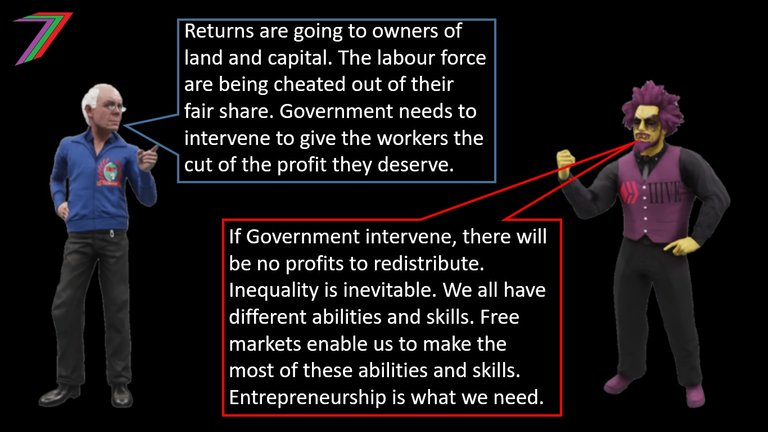
A key focus of the ‘Left’ was class struggle. Income and wealth inequality were seen as problems caused by higher returns from capital and land than labour. Owners of land and capital were considered as exploitative of their workforce. Proposed solutions involved the redistribution of wealth from the owners of capital and land to the workers. Therefore, creating a fairer more equitable society. A key focus of the ‘Right’ was economic opportunity. Society and the economy would thrive through enlightened self-interest. Free markets would direct resources to where they were most needed, which would be to the net benefit of society. The people who made the best use of the resources available to them would benefit the most. The ‘Right’ favoured overall economic growth over guaranteed equitable distribution of wealth.
‘Left’ arguments are easier to promote to the broader public, as they are described as being fair to the workers, who make up the largest proportion of the population. However, for these ‘Left’ ideas to be enacted, wealth is required to be forcibly removed from people. This is because a significant proportion of the population will not voluntarily share their wealth with others who have significantly less wealth. Therefore, Government adopts an authoritarian role in the redistribution of wealth. This is done through taxation or through state ownership of factors of production such as land and capital. Ironically, ‘Left’ leaning Governments have strongly supported income tax, which is in direct opposition to the ideology of rewarding people for their labour. Governments that push too hard to the ‘Left’ cause inefficiency, as people’s motivation to succeed or improve is greatly diminished because there is limited incentive to do so on an individual basis. The authoritarian role also greatly impinges on people’s freedom.
When land and capital are predominantly in hands of the few, ‘Right’ arguments are more difficult to promote to the broader public. However, free markets enable competition as well as cooperation amongst businesses. Higher profits attract more business entrants, which prevents too many businesses becoming large. The businesses that become large eventually struggle to compete as they become less dynamic and flexible to changing market conditions. Sadly, ‘Right’ leaning Governments do not let markets operate freely. Instead, they often attempt to incentivise and/or disincentivise particular behaviour and actions. This form of intervention usually favours bigger businesses, which are better positioned to respond to these incentives. This maintains land and capital in the hands of the few and maintains the strongest argument the ‘Left’ have against the ‘Right’.
Both ‘Left’ and ‘Right’ ideology has predominantly aligned itself with authoritarian implementation.
Both ‘Left’ and ‘Right’ leaning political parties have incentive not to be too extreme in their ideology. Far ‘Left’ ideology has been proven unsuccessful. It has predominantly resulted in stagnating economies and oppressed societies. Far ‘Right’ ideology has been twisted to represent a malevolent force for global domination as it has always been coupled with excessively authoritarian Governments. There are no compelling arguments that the implementation of far ‘Right’ ideology has to involve an excessively authoritarian Government. Since the atrocities of World War 2, far ‘Right’ ideology cannot escape its link to Fascism. This link to Fascism is still used as criticism of ‘Right’ ideology in general. Capitalism is falsely aligned with Fascism. However, Fascism opposes free market capitalism and instead supports crony capitalism where big businesses profit from fulfilling the wants of the country’s authoritarian leaders.
Both ‘Left’ and ‘Right’ political ideology have shifted towards each other. This happened to such an extent that in some countries the ‘Left’ and ‘Right’ parties barely differed at all. Therefore, changes in Government did not really change anything. Overtime, more people became aware that voting made very little difference to the type of Government that took office. This led to more people not participating in elections and strengthened anti-establishment movements against Governments
Reactive vs Proactive Response
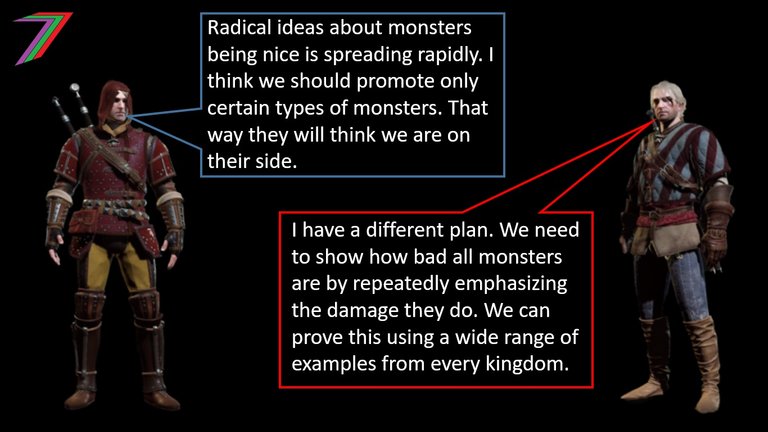
The two party system exists as a mechanism to control as many of the public as possible. It is most effective when people believe there are only two choices. If there are more choices, control becomes more difficult as more divergent views are required to be controlled. If there is one (no) choice, people will search for alternative ideology, which falls outside of the control system. The convergence of the ‘Left’ and ‘Right’ was pushing people to the no choice scenario. Therefore, an alternative choice of opposing the establishment became stronger. It became apparent that the anti-establishment surge was going to become a serious threat to existing political systems. The solution was to hijack the anti-establishment movement. A party needed to stand up (at least pretend) for the values of the anti-establishment movement.
The USA is looked up to as the leader of the democratic world. Hijacking the anti-establishment movement in the USA could trigger the hijacking of the anti-establishment movement across the western world. Instead of creating a new anti-establishment party, the Republican Party assumed that role with the nomination of their candidate Donald Trump for the 2016 Presidential Election. The Donald Trump campaign received strong support from anti-establishment and conspiracy alternative media such as Breitbart and InfoWars as well as maintained support from the majority of traditional Republican voters.
Donald Trump won the 2016 Presidential Election. Many people who opposed establishment politics believed that Donald Trump would give then a voice. He would change the way Government operated. We could argue that the Republican Party, by embracing Donald Trump, reacted to changing public opinion and capitalised on that to win public support and votes.
The hijacking of the anti-establishment movement by the Republican Party opened the door for the Democratic Party to control traditional and new ‘Left’ politics as well as the aspects of ‘Right’ politics the Republican Party needed to move away from to capture the anti-establishment vote. The Democratic Party became the party of the establishment. It maintained its pursuit for more authoritarian control over the public and it could utilize ‘Right’ policy to do so. However, the Democratic Party have also maintained the support of their traditional ‘Left’ leaning base who still believe they are supporting ‘Left’ policies. Apparently, the voter base believes ‘Left’ ideology is whatever, the party supposedly representing it, claims it is.
The ‘Right’ policies that ‘Left’ leaning Governments have pursued have not involved the promotion of free market economics but instead the authoritarian use of the private sector to achieve what they want. They use private sector mainstream media and social media to spread propaganda and fearmongering to increase voter base compliance. Many of these Governments have paid huge sums of money to pharmaceutical companies for experimental drugs. These Governments are manipulating, bribing and/or coercing their population to participate in the trials of these drugs without providing full disclosure of the risks. The similarities between the self-proclaimed ‘Left’ leaning Governments/parties and Fascist parties/groups is closing.
In the UK, a similar pattern has occurred. This was triggered by the European Union Membership Referendum. The public became more divided by ‘Leave’ and ‘Remain’ than by ‘Left’ and ‘Right’ politics. Government, political opposition to Government, and the media predominantly supported ‘Remain’ over ‘Leave’. However, the public were close to equally divided and ‘Leave’ narrowly won the vote. Leaving the European Union became known as Brexit. The Conservative Party (party linked to ‘Right’ ideology in the UK) reluctantly became the party supporting Brexit. The Labour Party (party linked to ‘Left’ ideology in the UK) and most of the minor parties became the parties opposing Brexit.
People wanted Brexit for many reasons. Two of the main reasons were taking back control from European Union and regaining full control over borders and immigration. An important similarity between UK’s Brexit and the USA’s Trump presidency is the movement against the establishment. The European Union embodied everything people loathed about incumbent politics. They had gradually assumed the role of a large multi-state/country entity, which had become equivalent to a country in itself. Most countries in the European Union have little to no meaningful influence on decisions made by the European Union leaders even though these decisions could influence them greatly.
Another important similarity between the UK and USA is that the parties representing the ‘Right’ assumed the roles of ‘being’ anti-establishment. While the parties representing the ‘Left’ assumed the roles supporting the establishment and gaining access to both traditional ‘Left’ and ‘Right’ politics.
Right preferred to Left
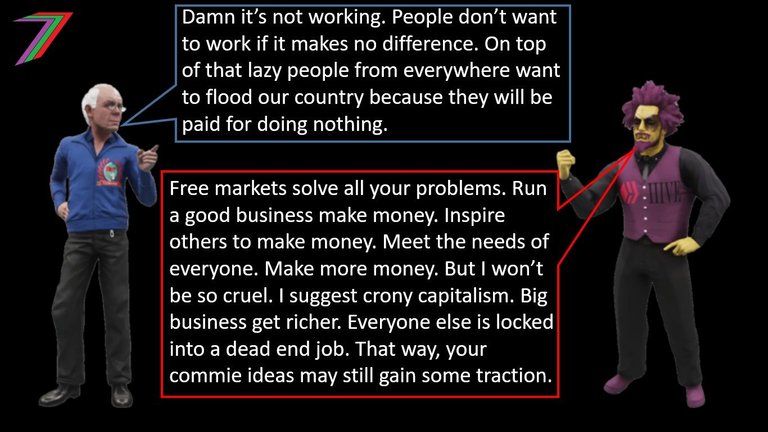
The arguments made on the ‘Left’ of politics have merit but the solutions offered have proven to be consistently inferior to free markets offered by the ‘Right’. The pursuit of equal opportunity has proven to be more successful than the pursuit of equality. This is because equal opportunity can be facilitated while equality needs to be enforced.
The positions of the ‘Left’ have become even more untenable as technology has improved and the world has become closely interlinked. A country that aims to enforce equality runs the risk of becoming completely swamped by people from poverty-stricken countries and refugees. Hence, destroying the wealth of all inhabitants. Free markets enable migrants to make a living for themselves but this requires hard work and skill. Migrants that lack the drive and skills to succeed will be less attracted to a country with free markets. The migrants that are attracted to a country with free markets are likely to offer more than they take thus making migration a success and a very good reason to encourage the free movement of people.
‘Right’ arguments that support free markets are very compelling and have a strong track-record. The growth of the USA is a very good example of the success of free markets. However, Governments are drawn to the authoritarian versions of ‘Right’ arguments, which has had the exact opposite effect. These Governments work to together with big business through various means such as tax breaks, regulations, subsidies, lobbying, spreading of propaganda, etc... Fascism in the past has involved the promotion of large private companies at the expense of small businesses. Large companies have benefited from collaborating with Government rather than using free market operations to be successful.
Supposedly ‘Left’ leaning Governments have pushed for the most stringent lockdowns during the Covid-19 pandemic. We have seen this with ‘Left’ leaning US and Australian State Governments, New Zealand Government, and ‘Left’ leaning countries in the European Union; arguably, Sweden is one of the few exceptions. These lockdowns have greatly facilitated the transfer of wealth from the working and middle classes to the multi-millionaire and billionaire classes. The lockdowns have destroyed many small businesses while the largest corporations have thrived. This is forcing small to medium business owners into paid employment. Vaccine passports/certificates are also receiving more support from supposedly ’Left’ leaning Governments. Such measures are discriminatory against those who did not receive the Covid-19 vaccines plus booster jabs. For people who did receive the jabs, they will become more heavily monitored and thus easier to control. All of which more closely resembles the far ‘Right’ ideology of World War 2 than any ‘Left’ ideology.
The new role of the ‘Right’
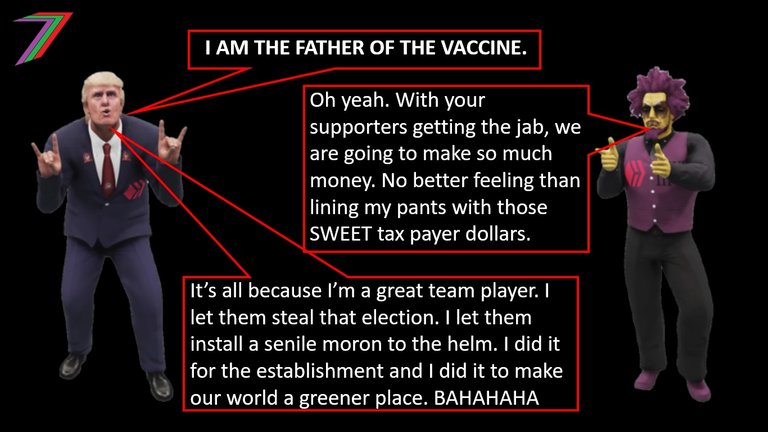
The new role of the ‘Right’ is essential for reducing the threat to authoritarian Governments. For this role to be effective, it needs to feel credible. In 2016, alternative media’s support for Donald Trump gave this role great credibility. This was because the alternative media had consistently challenged previous Governments (even the Republicans). When Donald Trump took office, he conducted himself very differently than other US President but his Government’s policies were mostly consistent with any other establishment Government. His antics and support of some conspiracy theories gave the impression to many he was different. In 2020, he ran for President again but lost under highly suspicious circumstances. This was accompanied by strong mainstream media basis and followed by banning on prominent social media platforms such as Facebook and Twitter. These events cemented his support from many in the anti-establishment movement. To many the rigged election was proof that Donald Trump was genuinely fighting the establishment. Otherwise, why would they go to such great effort to ensure he did not have a second term? If removing Donald Trump were the real motive behind rigging the election, it would have been done in a manner that would have generated far less suspicion.
With significant control over the anti-establishment movement, the Government can divert attention away from areas or polices they can least afford to be opposed. The biggest and most significant policies currently relate to Covid-19 and the vaccine rollouts. Donald Trump has shown opposition to some restrictions but has very openly supported and praised the new Covid-19 vaccines. He has called himself the “Father of the vaccine”. Donald Trump also supported the excessive printing of money, which will further contribute to the transfer of wealth from the working and middle classes to the ultra-rich.
In the UK, The Conservative Government (‘Right’ leaning) has imposed strict lockdowns and restrictions but still claim to be the party supporting freedom. This is because the opposition has pushed for even more strict and draconian measures to combat Covid-19. The UK, in comparison to other countries such as New Zealand, Australia, and France have relatively lenient Covid-19 measures. The support from the anti-establishment movement is beginning to wane as it is becoming more apparent that the Conservative Party do not support their values beyond Brexit. This has become clear with the push towards vaccine passports/certificates. The introduction of the news network, GB News, has attracted some of the anti-establishment as it has dared to attack some of the positions taken by the Conservative Government. However, the channel spends more energy on attacking the proclaimed ‘Left’ movement, which reinforces the ‘Left-Right’ divide. It also promotes the vaccine rollout, therefore becoming a form of controlled opposition to the measures they claim to oppose.
The path we might be heading down
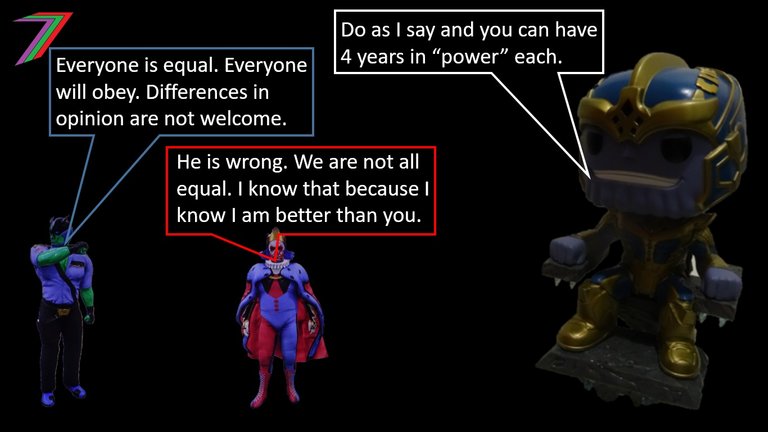
People are beginning to see through the illusion of choice created by the Left-Right paradigm. The shift by the ‘Right’ leaning political parties to incorporate the views of those disenchanted with the existing political systems has slowed the resistance against the system. It appears Governments do not think this approach is sustainable in the long-run. Therefore, the march to totalitarianism has intensified. Covid-19, restrictions, lockdowns and vaccinations have been the current aggressive phase. Climate change related rules and restrictions are likely to be an upcoming phase. The rapid implementation of the Great Reset is planned to span across the rest of this decade and possibly beyond. We can expect to see more control from Governments and international bodies. It is even possible we could have the formation of a global government.
Authoritarian Governments can take many different forms. The ‘Right’ leaning political figures and media will argue that a communist authoritarianism is the likely threat. I believe this is unlikely. The State are not going to nationalise major industries. The largest businesses in the private sector will not allow it. Such authoritarianism would be blocked. Instead, a variation of Fascism is more likely. It will not be a dictator ruthlessly dictating production while big business gladly accepts profits out of taxpayer money. Instead, I predict it will be a partnership between the biggest companies and major political parties. The big companies will have considerable political power. They will strongly influence when and who leads Governments. The big companies will benefit from subsidies from being environmentally friendly. World leaders will seek admiration for ridding the world of fossil fuels. Superiority will not be based on race or nationality. Instead, it will be based on class and extent of compliance with the system. Nationalism will not be a necessary feature as control will be global.
Life will not be good for most people. Automation will be used to replace most existing jobs. Small businesses will no longer exist, as they will not be able to compete with big businesses, which will be heavily supported by Government action. Despite technological advancements, costs of living are likely to increase because of restrictions, regulations, supply chain failures, inflation from excessive money supply, and big business monopoly power. There could be mass unemployment but more likely massive depopulation because it will be less costly.
What can be done to break out of this system?
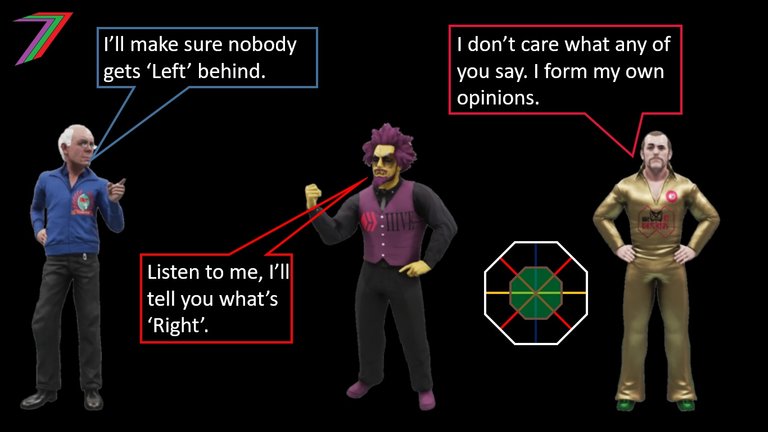
People need to form their own opinions and follow their own ideology. It is unwise to follow a person, people, or party because they claim something is part of a particular way of thinking. Authoritarian ‘Left’ and ‘Right’ are remarkably similar for ideologies that are often claimed to be opposites. Hence, moving between the two can be done with relative ease. People who blindly follow will be easily deceived.
In my post Exploring the Political Spectrum (Octagon Model) and my video Broad Political Spectrum, I describe alternative ways to explore the political spectrum, which are completely independent to what the main political parties are pushing. Representative Democracy, which typically leads to the two-party system, is a form of Totalitarian system where people believe they have a role in influencing governance and direction of a state or country. Instead, the two-party system limits debate to a few areas that normally have little to no impact in the long-run direction of a country. In Part 3 of my Democracy and Economics series, I discuss the many areas given little to no attention to in Australian politics.
I strongly believe we can create a much better system. A system that does not depend on fake representative Government officials. Instead, we can have a system that does not depend on any individuals in particular. We can have a system that uses the skills and expertise of our most talented people in any respective area. In my posts, Blockchain Government – Part 1: Breaking Down the Existing System and Part 2: Leadership from the Blockchain, I describe how the existing system can be replaced with a blockchain based system that would both enable transparency and accountability. The blockchain could be used to rapidly pool ideas to reach quicker, more effective, and more representative decisions.
More posts

If you want to read any of my other posts, you can click on the links below. These links will lead you to posts containing my collection of works. These 'Collection of Works' posts have been updated to contain links to the Hive versions of my posts.
My CBA Udemy Course
The course contains over 10 hours of video, over 60 downloadable resources, over 40 multiple-choice questions, 2 sample case studies, 1 practice CBA, life time access and a certificate on completion. The course is priced at the Tier 1 price of £20. I believe it is frequently available at half-price.
Future of Social Media
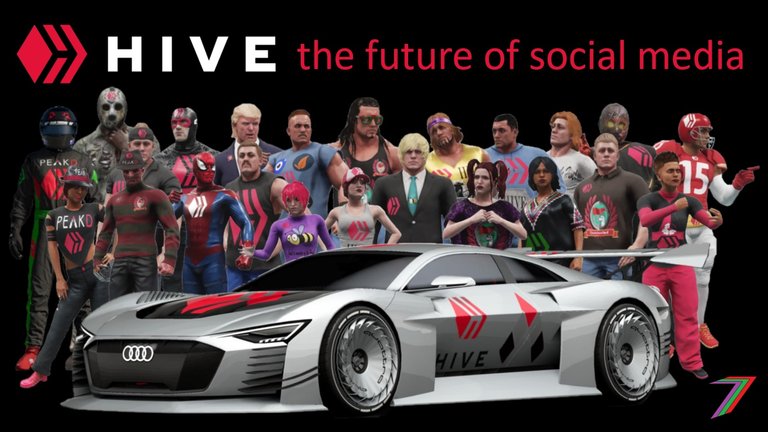





Wow I'm not very good at economics but to what I saw then on your article right on this, is a very good job well done and you did the analysis just like it really happened reality. there are so many things we need to do on our own before the government actually stepping and which so many people do not want to do even from their own the step before the government actually jump into any kind of conclusion great write-up my friend. Greetings from Nigeria 🇳🇬.
I think the strategy being used by Governments is quite simple. Limit everything to just 2 ways of thinking and then control the direction. This limits any real opposition. People need to take the time to figure out things for themselves. This can help us break out of this controlled system.
Absolutely. Yes. You nailed it on the head. I think the two way thinking direction will definitely help to reduce and fix more in the economy system.
Well written post!
I second this and happy to be contributing towards building better systems with Hive and crypto
Posted Using LeoFinance Beta
Hey @nathanmars, good to see you back. For a brighter future, crypto and blockchain will need to play an important part. Hive is a great place to start. It is a solution for providing free speech.
The rewards earned on this comment will go directly to the person sharing the post on Twitter as long as they are registered with @poshtoken. Sign up at https://hiveposh.com.
I try not to identify with the right or left even when my ideas and opinions seem to be in line with one of them. I also don’t want to assume I have all the answers, even though I feel I know a thing or two sometimes.
We can disagree and still get along too, a lot of division is seeded through manipulation, but you laid that all out pretty well.
I think a new left and right will emerge which are both more respectful of each other and more practical than ideological.
Very insightful post with many things I recognize as a former political activist. Left vs Right is very much about industrial society development. While modern societies as Sweden are more complex where the Left vs Right economic spectrum is just one political spectrum. Among the other ones there are globalism vs nationalism, GAL vs TAN, urban vs rural, progressive vs conservative, libertarian vs authoritarian etc.
Aspects as globalization, European integration, climate change have changed politics since the 1990s. Also, for example in Sweden, despite the "working class" rhetoric the current welfare state is more beneficial for the middle-class and left-wing parties as the Left Party and Social Democrats are more middle-class oriented. This is because class societies have also changed
https://glibe.substack.com/p/the-swedish-welfare-state-more-as
Here is one important insight